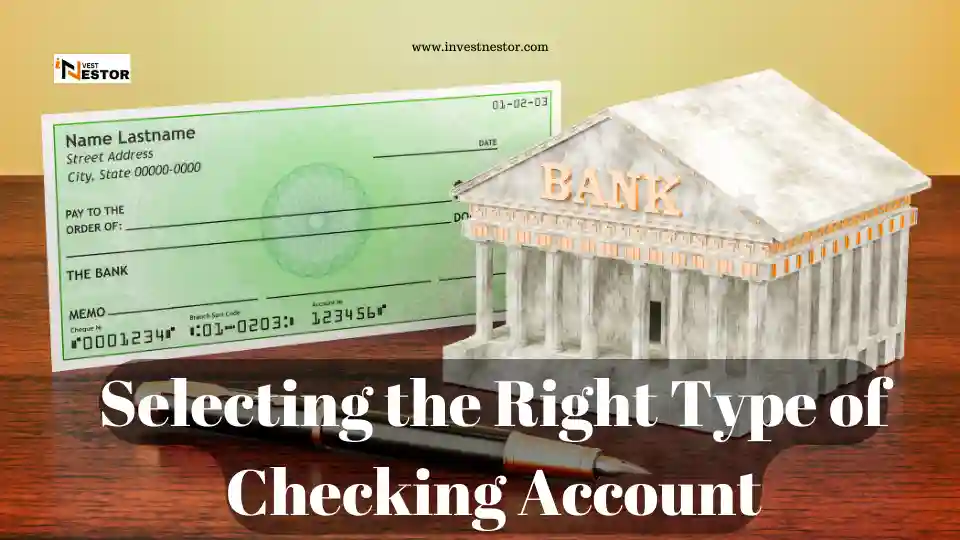
Certificate of Deposits: Are CDs Recession Proof Investment?
A certificate of deposit is a financial product banks provide where investors lock their funds for a predetermined period to earn higher returns than savings accounts. For this predetermined period, the funds remain inaccessible to the investor. In return, the financial institution offers a higher interest rate. The combination of interest rates and the effect of compounding helps the fund grow over time. If you come to keep your funds for extended periods, it will help you gain high returns.
Key Highlights
A certificate similar to a savings account where you keep your money for a set period to earn money. However, certificates of deposits are different from savings accounts as the money remains untouched until it reaches maturity.
Certificates of deposits are considered safer investment options compared to stocks and bonds. They may offer lower potential for growth but are not prone to market volatility and guarantee return on investment.
Certificates of deposits are widely available as every bank, credit union, and brokerage firm offers a wide range of certificates of deposits.
The Federal Deposit Insurance Corporation (FDIC) protects the money you keep in CDs with banks.
The National Credit Union Administration (NCUA) protects the money you keep in CDs with a credit union.
You leave your money in CDs until it matures and unleash it with earned interest.
They are non-volatile and offer lower growth than stocks and bonds, but they guarantee a return.
What is a Certificate of Deposit (CD)?
Certificates of deposits are similar to saving accounts, but you may required to make a minimum deposit. To open a certificate of deposit account, you must choose the terms and the period you want to deposit your money.
The banks or credit unions that deposit your money for 28 to 30 days up to 10 years. To earn a higher interest rate, you need to keep it for a more extended period.
Once your CD hits maturity, you can withdraw your money and fulfil your goals what you have saved for. It is also essential to understand that if you don't withdraw your money after maturity, your bank automatically rolls your savings into a new CD.
CD interest rates differ according to the financial institutions you choose. Hence, looking around and comparing CDs before making a deposit is wise. The federal fund rate plays a vital role in deciding the rates of CDs, as financial institutions use these rates as a benchmark to set their lending rates.
Is It Worth Investing in CDs?
Certificates of deposit offer numerous advantages for saving money, and therefore, they are good options for your financial goals. Still, the points below will assess: Are CDs worth it?
1- CDs Are Safer Options:
Similar to savings and money market accounts, certificates of deposit are one of the safest investments to keep your money growing. They are not prone to market volatility, and if your CD is insured by FDIC insurance, it means your money is protected. Currently, it covers $2,50,000 for every person's bank account. NCUA also protects the CDs with a credit union.
2- Guaranteed Returns:
Unlike stocks and bonds, certificates of deposit offer guaranteed returns that are predictable, and it is easy to determine how much interest you may earn after maturity. The rates of certificate of deposits are fixed.
3-They Provide Higher Returns:
Unlike saving accounts or money market accounts, certificates of deposit have higher potential returns and interest on deposits. But the condition is you have to keep your money in CDs for a set period. Your interest on a CD depends on the terms, current interest rate, and bank.
4-They Offer the Facility of Laddering:
CD laddering means you open multiple CDs at different interest rates with varying maturity dates. It is called building a CD ladder, which offers liquidity to your money and makes it more accessible at different interest rates.
5- They Don't Have Monthly Maintenance Fees:
To open a savings or money market account, you must pay maintenance fees to use the account; however, in the certificate of deposit, you are not charged any monthly maintenance fees. It means you only pay on your interest and wait to pay until you withdraw your money before maturity.
Suggested Articles: No-Penalty CDs: Flexible Savings with High Returns
How to Open Certificate of Deposit (CD) Account: Step-by-Step
Opening a certificate of deposit means gaining a guaranteed return on your investment with minimal risk. Here is a step-by-step guide on how to open a CD.
1- Find a CD That Fits Your Needs:
Compare CD interest rates online and consider federally insured banks and credit unions. Keep in mind CD terms, CD type and who owns the CD. Decide the tenure and how long you want to lock up your money. CD terms generally range from 3 months to 5 years. Look for no penalty or add-on CDs, as various CDs are available. Decide whether you want to open a single or joint account.
2- Choose How You Want to Apply:
You can open a CD online, as many banks offer the convenience of applying online. It takes only 5 to 20 minutes. Some banks even allow the customer to open a CD over the phone. If you find it convenient to visit the bank branch, you can finish the process in person.
3- Identification Process:
Submit your ID proofs, proof of your residential address, contact information, email address, etc.
4- Choice of Your Interest Deposit:
Many financial institutions offer two options to disperse your interest. You can receive all interest at the end of your certificate of deposit term, which is the most common option; however, you can disperse your interest as regular payments, like monthly or annually.
5- Deposit Your Money:
Make a deposit to your CD, but remember you can only add your money once. You have to leave it untouched until your CD matures.
Certificate of Deposit Example Types
Here are some of the most common and most selected certificate of deposits mentioned with brief details, For a detailed guide on the types of Certificate of Deposits, Please read the suggested article..
1- Traditional CD: It is the most common CD where you deposit your money, gain a fixed interest rate for the entire term and even face a penalty if you withdraw before your CD matures.
2- Jumbo CD: Jumbo CD is similar to traditional CD but requires higher minimum deposits of more than $50,000.
3- No Penalty CD: No penalty CD charges no penalty if you withdraw your money before the CD ends. It is also known as liquid CD. The major drawback is it offers a lower interest rate than other CDs.
Suggested Articles: Select the Right Certificate of Deposit (CD) Types and Best CD Term Length
Exploring the Downside of Certificate of Deposit Investments
Though certificates of deposit are the safe investment option, they are only preferable by some due to some of their downsides.
CDs Are Not Accessible
As savings accounts and money market accounts give you access to withdraw your money or transfer funds to another account, certificates of deposit accounts do not allow you to withdraw your money when you urgently need it.
CDs Are Prone to Early Withdrawal
CDs are designed to keep a certain amount for a specific period to earn higher interest rates on deposits. However, this unique feature of CD becomes one of the cons as you can't withdraw your money in case of any emergency. And if you do it, you are penalised for early withdrawal.
CDs Don't Have Growth Potential
Certificates of deposit are indeed safe investment options, but they are not growth potential options like shares or bonds. At the time of higher rates, certificates of deposits yield a better return, but when the rates are not favourable, your money won't grow as expected.
CDs Are Eroded by Inflation
Inflation is the biggest enemy of certificates of deposit as the investment doesn't grow according to the rise in the prices of goods and services. CDs become the most negligible option during low interest rates.
CDs Offer Lower Returns
It is acceptable that certificates of deposit are the safest investment option, but it is also true that they generate lower profits than other investments. Money with a certificate of deposit doesn't speed up with inflation, and you don't enjoy higher returns than investing in stocks or mutual funds.
Final Words
A certificate of deposit is a low-risk deposit account that helps you earn a fixed rate of return. In exchange for this guaranteed return, you commit to lock up your money until the CD matures. You incur an early withdrawal penalty if you withdraw your money before the term ends. Certificates of deposits are good investment options for those who want guaranteed returns and are less risk-tolerant.
Editor Picks:


 to Your Advantage.webp)



0 Comments
Add a comment